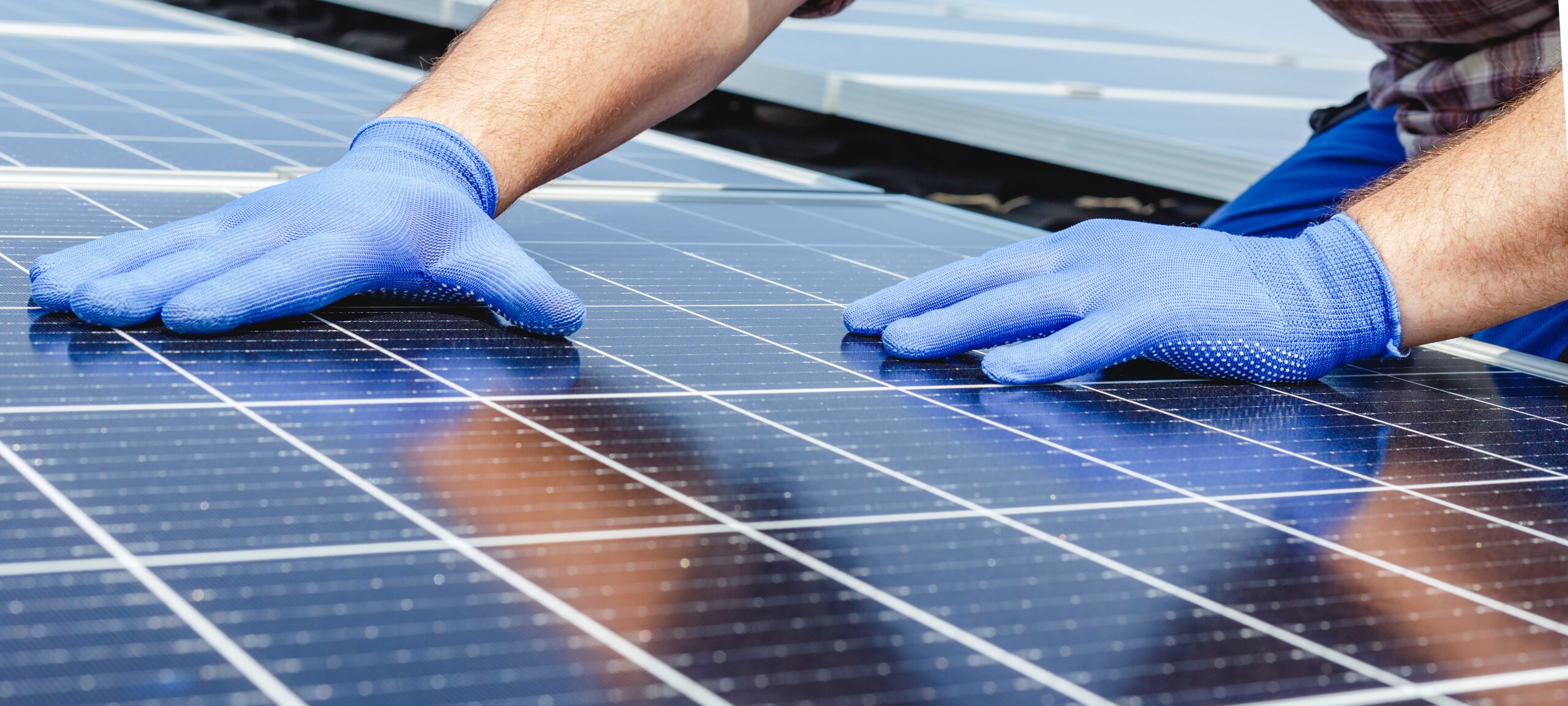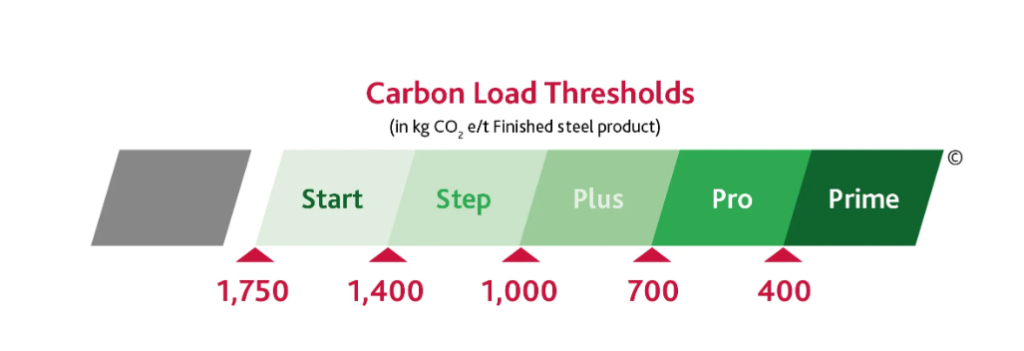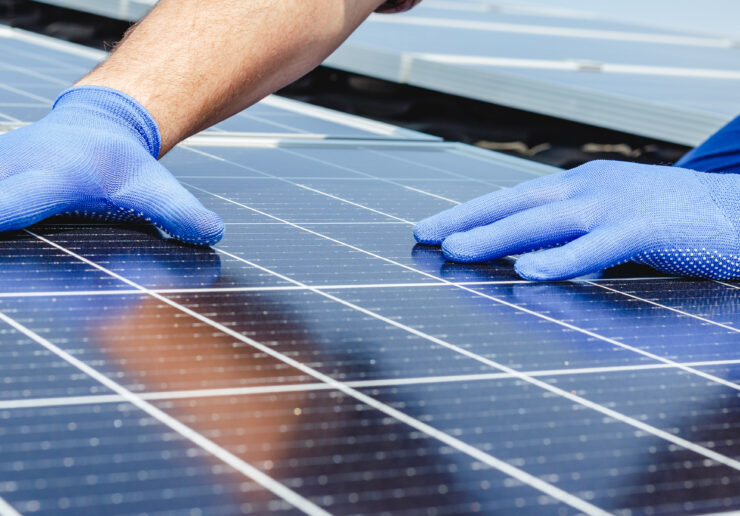
Solar energy manufacturers rely on solar energy equipment suppliers who can provide high-quality metals and other equipment at prices that allow them to be competitive in their markets. What do solar manufacturers look for in their raw material providers?
It’s important to remember that the more you understand the manufacturing process and the quality of potential suppliers’ products, the better your final decision will be. The following list of key considerations can help you find the right one for your project.
Did you know many of Kloeckner Metals’ nationwide branches boast special processing capabilities for the solar industry? Download our solar brochure now to see how Kloeckner Metals can service your solar needs.
Solar power’s primary selling point is its low carbon footprint, which is a fraction of that of coal or biomass co-firing. Producing solar equipment, however, is not a carbon-free process. Each piece of a solar panel must be produced by a manufacturer, and each production process involves its own set of carbon emissions.
For example, solar panels are made of silicon, which is turned into a low-carbon product called polysilicon. Polysilicon production uses large amounts of carbon, and the energy for production often comes from coal or gas-fired power stations — which in turn emit even more carbon into the atmosphere.
Nevertheless, solar power manufacturers’ need for carbon-intensive metals like aluminum or stainless steel is soaring. While solar panels themselves save on carbon emissions, solar’s overall carbon savings can drop when the production process is accounted for.
As a result, it’s important for solar manufacturers to choose suppliers that value carbon neutrality. No supplier is currently emission-free, but most cutting-edge metal suppliers are working toward carbon-emission-free, fossil-free steel creation as early as 2026. Kloeckner Metals is proud to share that it is already carbon neutral and has made strong investments in decarbonizing steel.
Transparent supply chain practices are important for solar power manufacturers not only because they give manufacturers a better understanding of the carbon footprint that they’re creating, but also because they prevent a slew of problems and improve manufacturing outcomes.
A transparent supply chain builds on the concept of visibility. In a visible supply chain, companies have access to reliable data about their goods starting at production and continuing through every link in the chain. In a transparent supply chain, companies actually act on the data they’ve accessed. Transparency allows companies to identify and prioritize risks, close information gaps, and monitor high-risk suppliers.
The term “green steel” is not universally defined, but in general, it refers to steel manufactured through processes that emit less CO2 during production. These processes lower our impact on climate change.
This is significant because steel manufacturing is one of the highest industrial emitters of greenhouse gasses — placing second after concrete production and accounting for about 8% of global emissions. Under a net-zero scenario, that number would increase to just 10% by 2050.
At Kloeckner, we developed six categories for defining green steel, all based on carbon load thresholds. Guido Kerkhoff, Klöckner & Co‘s CEO, says, “Our categorization will bring more transparency to the green steel market for our customers. We want to lead the way and have set an ambitious target: by 2025, over 30% of our products will come from the most sustainable categories.”

Everyone wants “high-quality” products, but “quality” needs a definition. When it comes to steel, how do you determine which product has quality and which one doesn’t?
Most of the answer lies in chemistry, and the rest can be found in the metal’s mechanical structure. The fewer impurities in a steel’s chemical composition, the higher its quality. For example, stainless steel is composed of iron and nickel with small amounts of carbon; alloying chromium into it makes it corrosion resistant. The chemical balance of these elements should fit within recognized levels for steel production.
In addition, a steel’s microstructure should match its specifications, and its mechanical structure should meet industry-wide requirements for its grade. In short, quality steel is made from high-quality raw materials and has excellent tensile strength, toughness, ductility, and malleability. Kloeckner Metals works with the largest steel and aluminum mills in North America to ensure quality for its customers.
It is important for manufacturers to know their customers and for the customer service department to be knowledgeable about product features and specifications. The customer service department should have easy access to product information, including pictures, prices, inventory levels, and order status. Your supplier’s customer service team should be able to answer questions about products correctly and efficiently as well as help you receive your products when expected.
Like almost everything else, the cost of steel, aluminum, and other metals for solar energy panels is increasing. Part of the increase is due to simple inflation. The other part is specific to supply chains that affect the global metal fabrication and production industry.
Cost is, of course, a very important consideration in any purchase, but it should not be the only factor you consider. Manufacturers can provide additional value like toll processing, logistical support, and supply chain solutions that more than offset the higher sticker cost of high-quality materials
Did you know many of Kloeckner Metals’ nationwide branches boast special processing capabilities for the solar industry? Download our solar brochure now to see how Kloeckner Metals can service your solar needs.

Steel base plates are fundamental elements employed in various manufacturing...
Metal fabrication is a critical process that transforms raw metal...
The solar industry has undergone a significant transformation by incorporating...

X
The Kloeckner Metals website uses modern technologies. Unfortunately, your browser doesn't support those technologies.
Download the latest version of one of these browsers to experience the site: